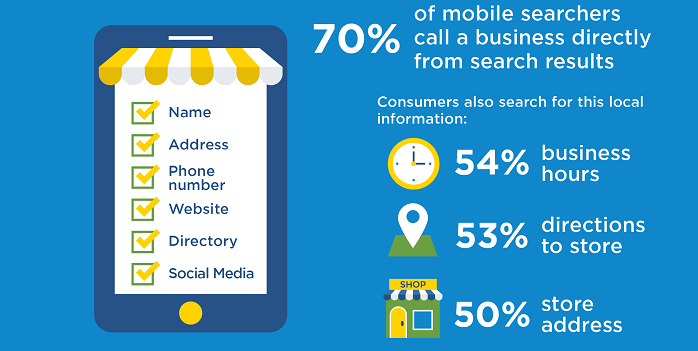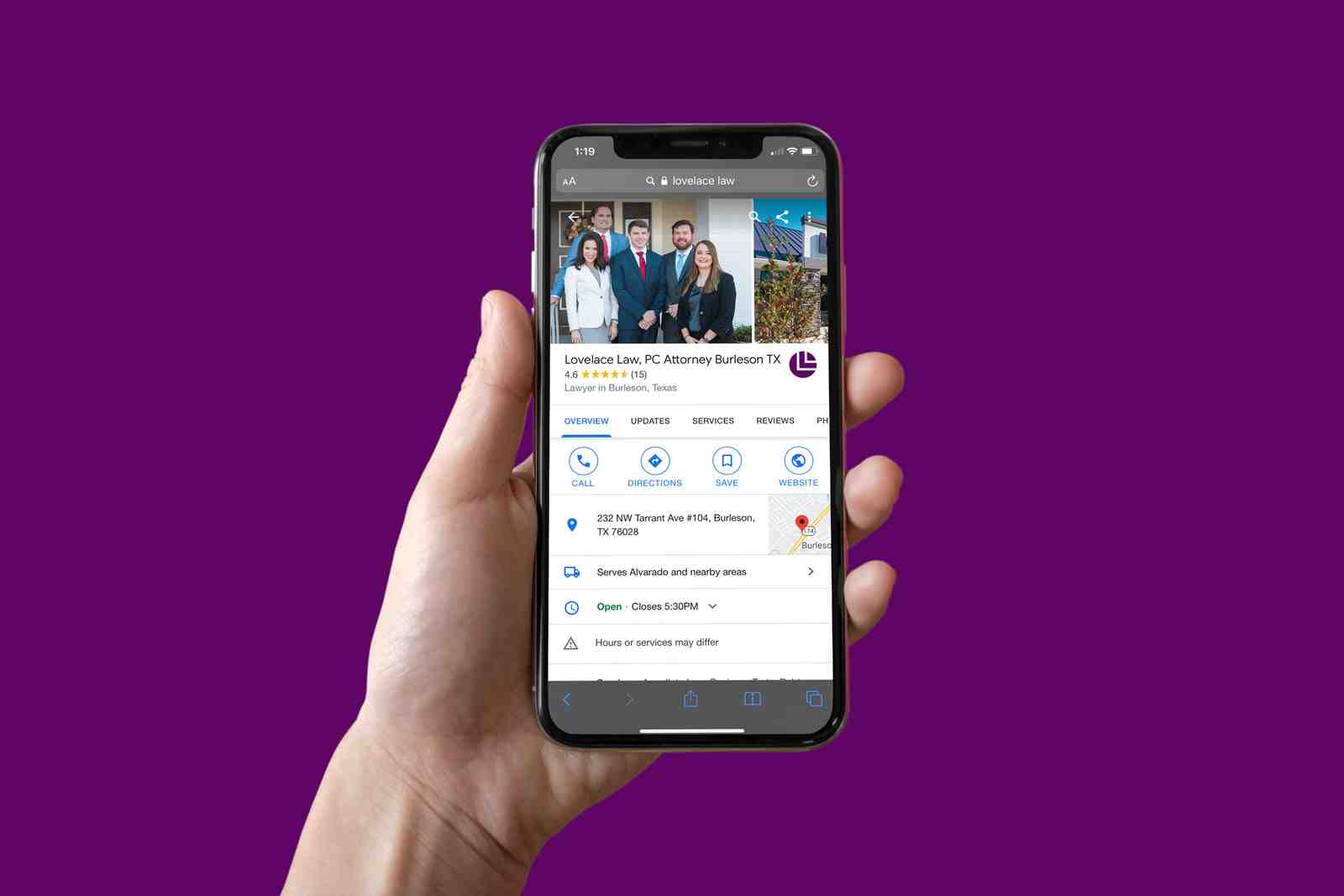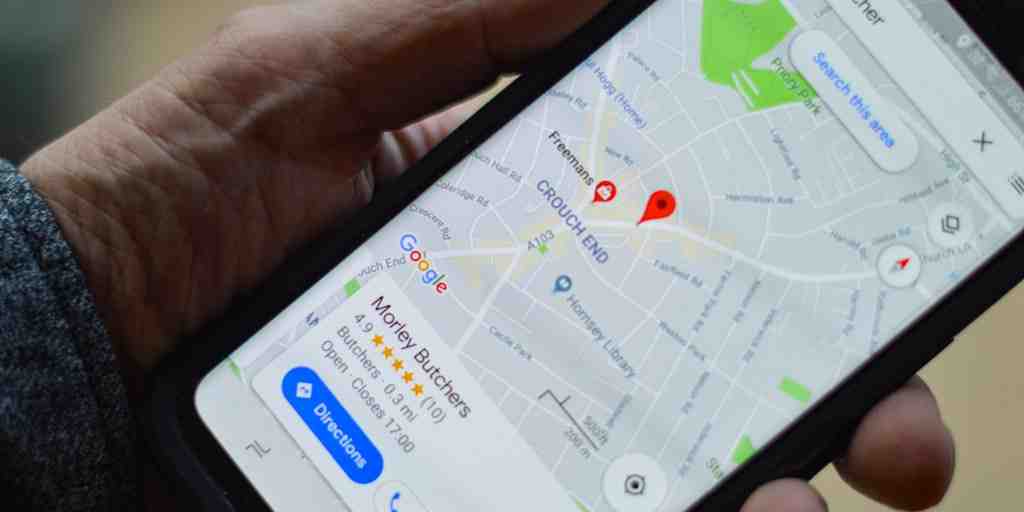Today’s market is extremely competitive.
The first benchmark that many SMBs set for themselves is going national; ever-changing algorithms can make digital marketing more challenging than one might expect; and it is difficult to become visible in the pool of competitors who have been creating Google listings for years.
This can be daunting for business owners just starting out; but a competitive market does not mean that growth is impossible. With the right local search engine optimization (SEO) practices, you can meet your growth goals and then some.
Here’s how local SEO can help you grow your business:
What is Local SEO?
Contents
- 1 What is Local SEO?
- 2 How to Improve Local SEO
- 2.1 Optimize Your Google Business Profile
- 2.2 Ensure Citations are Consistent
- 2.3 Monitor Your Reviews and Request Feedback
- 2.4 Make Localized Content
- 2.5 Obtain Local Backlinks
- 2.6 Use Local Keywords
- 2.7 Use Social Media
- 2.8 Make a Separate Page for Every Product/Service
- 2.9 Leverage Online Local Business Directories
- 3 Conclusion
- 4 Why is local SEO important?
- 5 Will SEO be relevant in future?
- 6 What kind of business can use local SEO?
- 7 How many Google searches are local?
- 8 Who should use local SEO?

The main purpose of SEO is for your website to achieve a better rank on search engine results pages (SERPs). Local SEO then encompasses a series of strategies that help increase the visibility of your business in search results from your area.
To attract a large number of visitors, your website must be indexed on Google’s first page of search results; otherwise, you will miss being discovered by potential customers. After all, about 75% of users do not go beyond the first page on search engines.
In addition, about 97% of users use a search engine to find local companies near them. Local SEO can help these people find your business before they find your competitors.
How to Improve Local SEO

Some local SEO strategies can be applied directly to your website, such as:
Before we dive deeper into local SEO strategies, keep in mind that they work best when combined with basic SEO practices. (Also read: 3 tips for developing an IT marketing strategy.)
With that said, here are more ways to improve local SEO:
Optimize Your Google Business Profile
Your Google Business Profile – previously known as your Google MyBusiness listing – allows your company to appear prominently on Google Maps and local SERPs.
Here’s how to set up and optimize your Google Business Profile:
Ensure Citations are Consistent
Consistency will get you a long way, especially when it comes to SEO. Consistent citations make it easier for consumers to find you and will also make you appear more credible.
For local SEO, you’ll want to make sure the following remains consistent across all publications that refer to you, including your own website and your Google Business Profile:
Monitor Your Reviews and Request Feedback
Reviews can make or break a company’s local SEO.
This is true for a number of reasons:
So how do you get positive reviews?
You can either offer a service or a product so that good customers want to leave positive feedback, or you can request reviews from your customers. In any case, it will benefit your company and SEO.
Make Localized Content
A regional and highly targeted content marketing strategy will help you rank higher in local search results. Some tips for this include:
An important note: Although your material should be local, it should also benefit your audience. The latter is the main attraction when it comes to content. (Also Read: What Makes Web Content Viral?)
Obtain Local Backlinks
Both are key factors in improving your website’s ranking in search engines.
To get local backlinks, you should first prioritize building and attracting local connections. Befriend companies that complement yours and that do not directly compete with you.
Start communicating and interacting with them in the comments section of their website. Make thoughtful and useful comments. This will make your customers and the author consider you an expert in attracting high-quality backlinks to your blog.
It’s all about trying to reach your target audience as much as you can.
Another option is to use a backlink checker technique to evaluate your competitors’ websites. This will help you identify websites that link to your competitors. Then you can contact this website and explain why your brand is above others.
Backlink building is a time-consuming and sometimes hit-or-miss process, but a few high-performing backlinks go a long way.
Use Local Keywords
Keyword research is extremely important to optimize your content for search engines.
Keywords are phrases that your target audience searches for on the Internet. These keywords could be one word or a whole phrase (long tail).
For local SEO, you want to target local keywords. To find local keywords, use a keyword research tool like Ahrefs or Semrush. These tools can help you find the most popular phrases that people in your area are typing into Google.
If you know what people in your area are typing in search engines, your task is to organically integrate these phrases into your blog. This helps signal your website to a search engine’s algorithm while ensuring that your content is not interrupted.
One thing to remember is that you should avoid stuffing your blogs with your target keywords. This is called “over-optimization”, and it will neither improve the user experience nor help you rank higher. In fact, it can cause search engines to prevent your website from being indexed.
When it comes to SEO, you should use all the digital tools at your disposal. And social media is one of the most popular.
Having a strong presence on social media makes your company more trustworthy, which can help you rank higher. Plus, social networking allows you to show a more emotional element of your brand while maintaining clarity.
Make sure your social media profiles are relevant to your position in your business. The information you add should be consistent across these channels. (Remember: regularity is key!)
Make a Separate Page for Every Product/Service
Cramming all your goods and services into a single page is very attractive. After all, it’s quick and easy – for you.
However, to make things easier for your customers and for search engines, you should create a special section with separate pages for each good/service you offer.
Remember: If you only have one page with all your products and services listed, you only have one chance to rank on Google. But if you have separate pages for each product/service, you have a much better chance of ranking for many more keywords.
To illustrate, let’s say you own a bakery in Toronto. With all your products listed on one page, your keyword list is quite limited: “Toronto bakery”, “Toronto desserts” or “Ontario bakery” might be some examples. But expand your product offering to multiple pages, and suddenly you can target “Toronto Cupcakes,” “Toronto Pies,” “Toronto Birthday Cakes,” “Toronto Wedding Cakes”—the list goes on!
If you only have one product or service but multiple locations, create a separate page for each location and use location-based copy on the page.
For example, a home inspection company with multiple locations may create separate pages for “Toronto home inspections,” “Montreal home inspections,” and “Vancouver home inspections.”
Leverage Online Local Business Directories
Online business directories offer two significant benefits to your local business:
However, keep the following in mind when adding your local business to these business directories:
Conclusion

Local SEO is similar to conventional SEO in some ways, but with the added emphasis on local keywords and audiences. In local SEO, everything—including your content, keywords, and citations—should brand you as a business in your area (and adjacent locations).
You can maintain local SEO by ensuring consistency, especially when it comes to your contact information. However, with local SEO – as with conventional SEO – it’s important to remember that best practices are always changing. The only foolproof local SEO strategy is one that changes with the trends. (Also read: 6 signs that mobile is the new key to winning at SEO.)
Why is local SEO important?
Benefits of Local SEO Better Online Visibility: Local SEO activity, such as citation and link building, increases your online visibility. This makes your business easier to discover by new customers. More in-store foot traffic: Increased local visibility brings more foot traffic to your brick-and-mortar location.
Who benefits from local SEO & Why? With local SEO, your business gets more visibility and that it is found by the right people who are interested in your product and at the right time. If your business is more visible, that means more profits, sales, and even relevance.
Why local SEO is important for small business?
A successful local SEO campaign helps your business because: Local SEO increases your website’s ranking in search results and in the local pack. It gets the highest conversion rate of all local advertising channels. It increases your online visibility, especially for nearby customers.
What is local SEO for small businesses?
Local SEO means optimizing your business’s website so that it ranks higher in the map listings on search engines like Google. This way, your local target audience is more likely to see your website if they use relevant search terms.
What is local SEO and why it is important for SEO?
Simply put, local SEO is where you focus on improving your rankings and visibility in local search results such as Google’s Map Pack / Local Pack. Organic SEO is how to improve website ranking in organic search. How your website ranks in the organic results can also positively affect your Local Pack ranking.
What is local SEO and why is it so important?
Local SEO is a search engine optimization (SEO) strategy that helps your business be more visible in local search results on Google. Any business that has a physical location or serves a geographic area can benefit from local SEO.
What is important local SEO for a website?
Local SEO allows you to put important information about your site online, such as the address and phone number of your business. In addition, you can highlight and promote the type of products or services you offer on your website using SEO techniques.
What is local SEO and what are the benefits of local SEO?
While SEO focuses on generating organic traffic to your website by increasing your search engine ranking, the job of local SEO lies in optimizing your pages to earn high rankings for local queries in specific areas.
Will SEO be relevant in future?

One thing is for sure though: SEO will be around for a long time. As long as search engines exist and Internet users continue to use keywords and phrases to find what they are looking for, the search engine business will continue.
Is SEO still relevant in 2022? Will SEO still be relevant in 2022? Yes of course. Although some SEO tactics that were effective in the past have stopped working, SEO has continued to evolve. Constantly reinvent to try to better match user intent, cut the spammy, ineffective tactics to get better.
Will SEO exist in 5 years?
SEO will not be eliminated in the next five years, as social media and search engines will more than likely merge. Facebook has already started doing this: they average over 1.5 billion searches every day. Twitter did the same; they are in collaboration with Google.
Is SEO worth it in 2022?
Yes, SEO is worth it in 2022, in the future, in the past, and always. As long as websites and search engines have existed, SEO has been necessary. SEO 10 years from now will probably be very different from SEO today, but you still need to make sure that your website is sending search engines the right signals so that you can be found.
How long will SEO last?
SEO should show results within a period of 6 to 12 months. By results we mean a measurable increase in traffic and associated leads or conversions.
Does SEO have a future?
SEO is now considered a long-term investment for businesses, with results showing up gradually over time. SEO is considered almost dead by many web administrators and business owners due to recent search engine algorithms. They believe that SEO is no longer effective and will never bring fruitful results.
What is the future of SEO in 2022?
By 2022, it is expected that SEO rankings will be more competitive with providing high-quality content that is helpful to Internet users. Content that only tries to fish for its audience by linking to unnecessary sourcing will not be effective as it is today.
Does SEO have a future?
SEO is now considered a long-term investment for businesses, with results showing up gradually over time. SEO is considered almost dead by many web administrators and business owners due to recent search engine algorithms. They believe that SEO is no longer effective and will never bring fruitful results.
What is the best SEO strategy in 2022?
12 Most Effective SEO Tips You Need to Know for 2022
- Focus on UX.
- Use internal linking.
- Focus on entity-based SEO.
- Create blog posts as videos.
- Go to Google Discover.
- Update existing content.
- Optimize content for voice search.
- Drive traffic with long-tail keywords.
Will SEO exist in 10 years?
According to a survey sent to the Twitter audience by Search Engine Journal, 28% say that AI will never take over SEO, 55% predict that AI will take over SEO within 10 years, and 17% say in 11-20 years.
Is there a future for SEO?
SEO is now considered a long-term investment for businesses, with results showing up gradually over time. SEO is considered almost dead by many web administrators and business owners due to recent search engine algorithms. They believe that SEO is no longer effective and will never bring fruitful results.
Will SEO be obsolete?
As long as search engine results pages exist, SEO will never be obsolete. As long as the algorithm continues to crawl our websites, there will always be a need for SEO professionals. Organic search will always be a channel that can deliver tremendous value to any business.
How long will SEO last?
SEO should show results within a period of 6 to 12 months. By results we mean a measurable increase in traffic and associated leads or conversions.
What kind of business can use local SEO?
Businesses that provide medical services, such as doctor’s offices, dental practices and urgent care clinics, are perfect for local SEO. Other than building a phenomenal website, there are many things these specialists can do to boost their rankings.
Which industry needs SEO the most? Which industries need SEO the most?
- Restaurants. Restaurants and cafes can largely benefit from SEO tools. …
- Online business. Running an online business without a proper SEO strategy is basically asking for failure! …
- Home repair and renovation. …
- Professional services. …
- Real estate. …
- Medical Practitioners and Services.
What is local SEO for small businesses?
Local SEO means optimizing your business’s website so that it ranks higher in the map listings on search engines like Google. This way, your local target audience is more likely to see your website if they use relevant search terms.
What is local SEO in business?
Local SEO is a search engine optimization (SEO) strategy that helps your business be more visible in local search results on Google. Any business that has a physical location or serves a geographic area can benefit from local SEO.
What is the best SEO for a small business?
SmartSites has an excellent reputation for creating and implementing effective SEO strategies for all types of businesses. That’s why SmartSites is Forbes Advisor’s pick for the best overall SEO service for small businesses.
Why small businesses Need local SEO?
A successful local SEO campaign helps your business because: Local SEO increases your website’s ranking in search results and in the local pack. It gets the highest conversion rate of all local advertising channels. It increases your online visibility, especially for nearby customers.
What is the benefit of local SEO?
Local SEO helps increase online visibility so you get noticed by new customers. Google Maps and Google My Business optimization can generate more direct calls, leads and sales. Optimizing your website for localized terms means you’ll attract targeted traffic and better leads.
How many Google searches are local?
In fact, nearly 46% of all Google searches are for local information.
Where do most Google searches come from? 63 percent of Google’s organic search traffic in the US originates from mobile devices. Facebook was the most searched keyword on Google. 84 percent of respondents use Google 3 times a day or more. 46 percent of product searches start on Google.
How many people search local businesses on Google?
86% of customers use Google Maps to find local businesses The latest local SEO statistics from Google Maps show that 86% of users use the platform to search for local businesses and businesses.
How many people search online for local businesses?
What percentage of searches are local? In 2020, 93% of consumers used online search to find a local business (as per BrightLocal’s survey of 1,013 US-based consumers).
What percent of Google searches are local?
Almost half (46%) of all Google searches consist of users looking for local information. These local searches consist of people looking for businesses in their area or in a specific service area.
How many businesses are searched on Google per day?
Summary: Google Search Statistics 2022 Google processes over 8.5 billion searches per day.
What percent of searches are local?
Almost half (46%) of all Google searches consist of users looking for local information. These local searches consist of people looking for businesses in their area or in a specific service area.
What percent of searches have local intent?
Did you know that 88% of consumers who do a local search on their smartphone visit or call a store within a day? In fact, nearly 46% of all Google searches are for local information.
How many people search local businesses?
What percentage of searches are local? In 2020, 93% of consumers used online search to find a local business (as per BrightLocal’s survey of 1,013 US-based consumers).
What is local search ranking?
Local SERPs describe the results that appear for a local-based query based on where the customer is. Local SERPs usually include a local 3-pack at the top and display the most relevant results on the map.
What percentage of searches are new on Google?
There are trillions of searches on Google every year. In fact, 15 percent of the searches we see every day are new – which means there is always more work for us to do to present people with the best answers to their queries from a wide variety of legitimate sources.
How many Google searches are new per day?
Although Google does not share exact numbers, as reported by SEOTribunal.com, Google handles 3.8 million searches per minute on average worldwide. That comes to 228 million searches per hour, 5.6 billion searches per day, or 2 trillion searches per year! That’s a lot of searching!
How many searches does Google get per second in 2022?
We know that there are many searches performed on Google every day. But how much is that exactly? The latest data shows that Google processes over 99,000 searches every second (Internet Live Stats, 2022). This makes more than 8.5 billion searches per day (Internet Live Stats, 2022).
How many searches Google gets every second?
Google does not share its search volume data. However, it is estimated that Google processes about 63,000 search queries every second, which translates to 5.6 billion searches per day and about 2 trillion global searches per year.
Who should use local SEO?
Any business that has a physical location or serves a geographic area can benefit from local SEO. If you search on Google for important keywords related to your business and a map with 3 listings below it appears (also known as a map pack), then local SEO can help you grow your business.
Who benefits from local SEO? The most obvious benefit to search engine optimization in general is the ability to increase your rankings on Google Search and other search engines. All businesses – local or otherwise – want the number 1 spot because then they have the best chance of attracting new website visitors.
Why should I opt for local SEO services?
One of the top benefits of local SEO is that it improves your search positions, giving you more visibility and, as a result, trust. This is because when you optimize your content for a specific area, it signals to Google that your business is local and that you are relevant to queries in your location.
